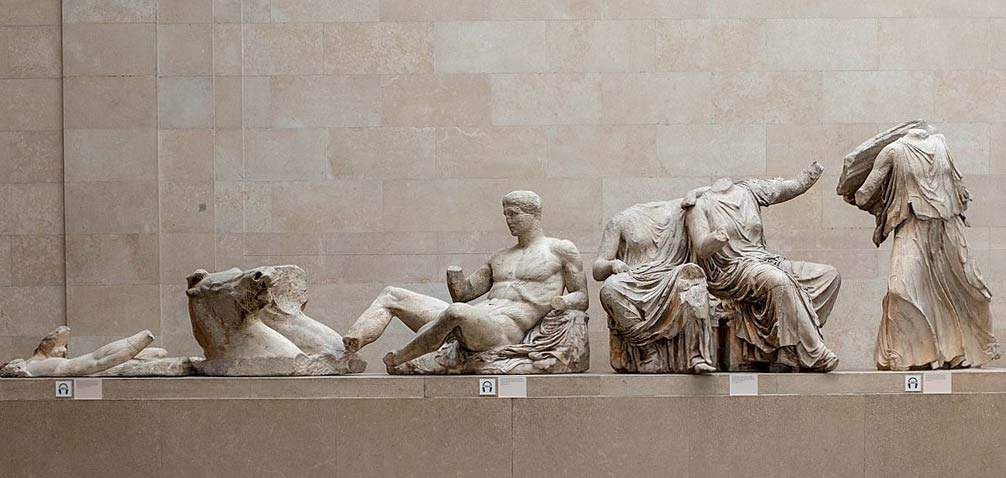There are tentative openings from the British side in the case of the Parthenon Marbles, the set of sculptures now in the British Museum but which in ancient times decorated the great temple in Athens, which were removed in 1901 by Lord Elgin, and of which Greece has long demanded the return. This Tuesday, in fact, British Museum President George Osborne, in an interview with radio station LBC, hinted that an agreement with Athens could be reached in the future, although more is not known at the moment.
“It is necessary to strike a deal,” Osborne said, “where we can tell both stories to Athens and London if we both approach this without a load of preconditions, without a load of red lines.... Reasonable people could organize something that would enhance the Parthenon marbles to the fullest, but if one side says there is nothing to be done, then there will be no agreement.” The journalist who interviewed Osborne, Andrew Marr, then asked him if this means there may be conditions to move some of the marbles to Greece, at least temporarily. He replied that this is a feasible arrangement, but also that the president cannot speak for the museum trustees, who will decide what to do.
The British Museum also issued a note characterized by softer tones than those used in the past. “The museum,” the note reads, “is always willing to consider requests to borrow any objects from the collection. These beautiful works of art are beloved by a global community, and we believe that public access should be at the center of these conversations; too often discussions are limited to a legalistic and adversarial context instead of focusing on how to share the sculptures with a wider world. Deepening public access, creating new ways and opportunities to share and understand collections around the world, remains at the heart of what the British Museum is trying to achieve.”
In short, decidedly more relaxed tones than when, in 2019, the British Museum let Greece know that a loan could only be discussed if Athens formally recognized British ownership of the marbles. Also interesting is the timing of Osborne’s interview, which comes just days after the return to Greece of the Palermo Fragment, the only Parthenon marble preserved in Italy, and the announcement of an upcoming formal meeting between Greece and the UK to decide the case.
At the moment there is nothing concrete yet, but given these latest developments it is not certain that the situation, for the Parthenon Marbles, may not change in the fairly near future.
Image: Parthenon Marbles, the southern part of the east pediment at the British Museum. Photo by Brian Jeffery Beggerly
 |
| Parthenon marbles, British timid opening: 'necessary to conclude an agreement' |
Warning: the translation into English of the original Italian article was created using automatic tools. We undertake to review all articles, but we do not guarantee the total absence of inaccuracies in the translation due to the program. You can find the original by clicking on the ITA button. If you find any mistake,please contact us.